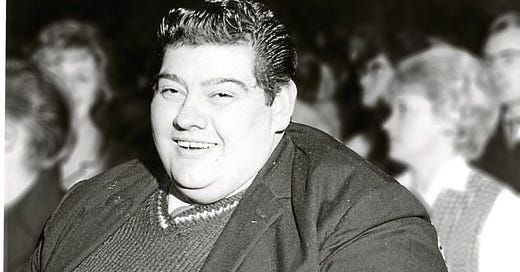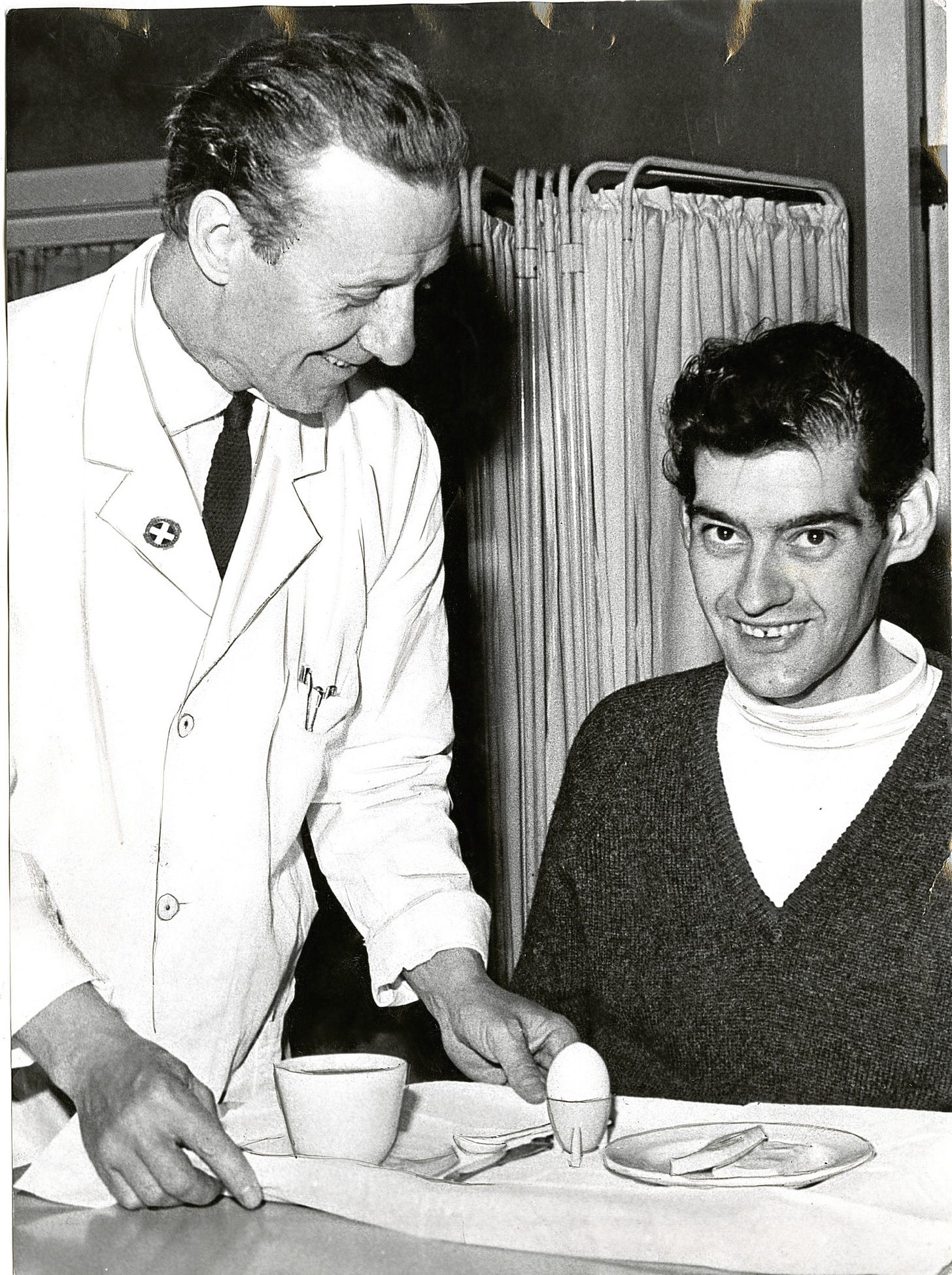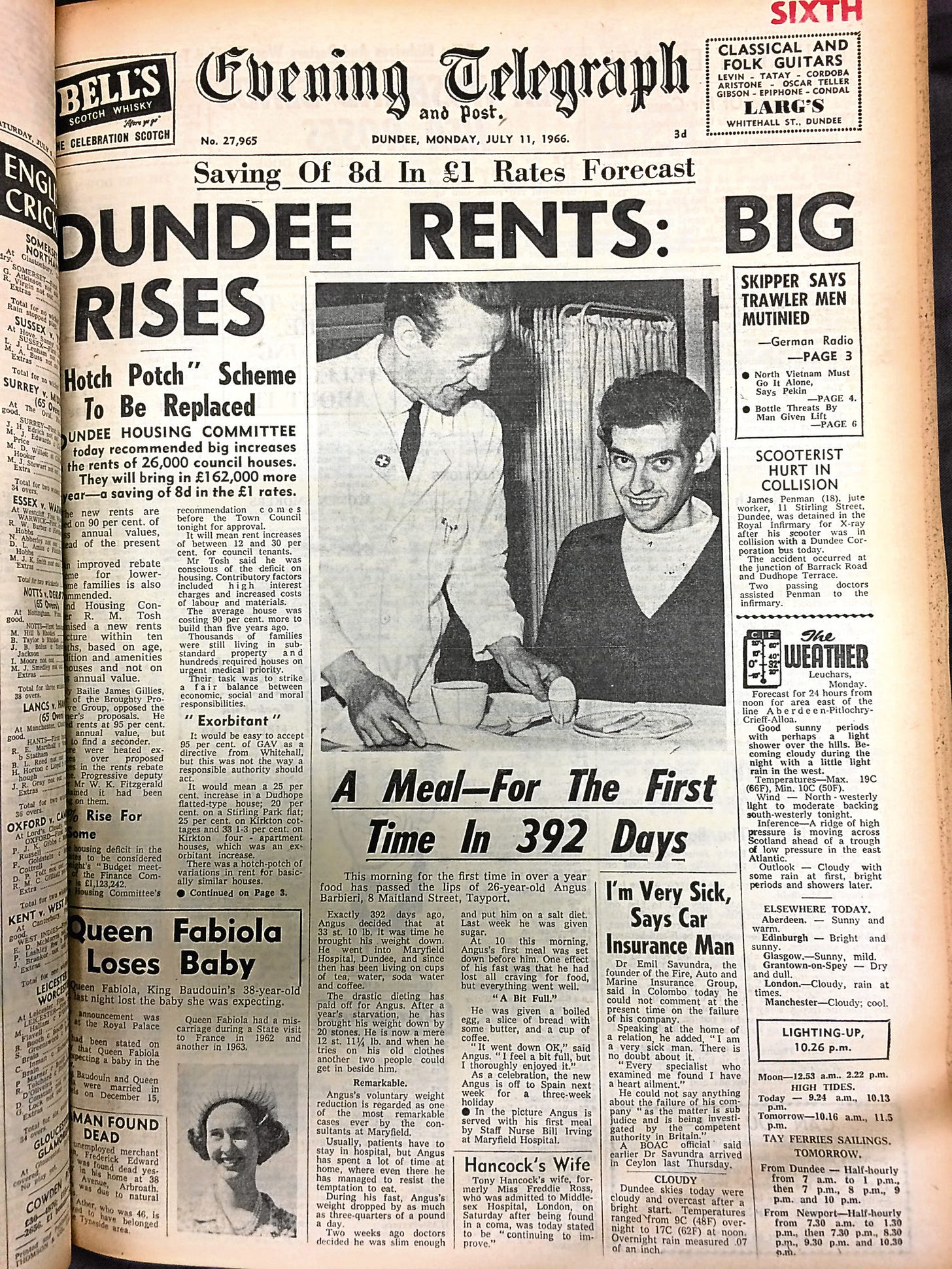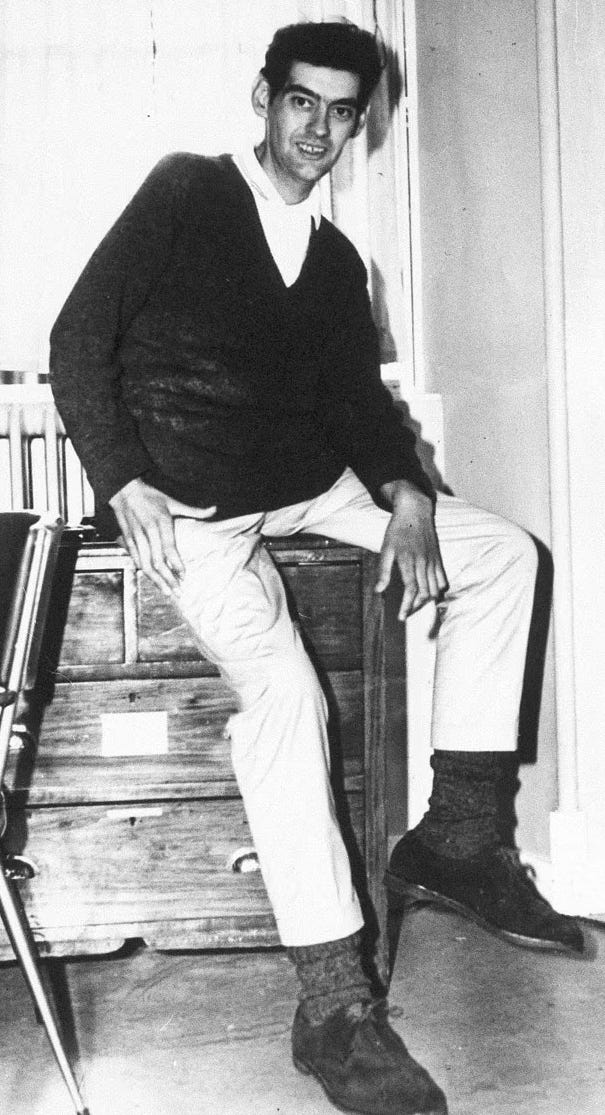When I read Antifragile a couple of years ago, I was impressed with the idea Nassim Taleb expounded that discontinuous variations or volatility could be more beneficial in some circumstances than steady states. Taleb cited J. Clerk Maxwell’s 1868 article “On Governors” as an example of how tight speed controls in engines could lead to instability. This train of thought supported the argument that stressors such as Hormesis (the benefit of poisons in small doses to trigger defensive overreactions) were sometimes more valuable than gradual changes. That all reminds me of a story that comes up in a lot of descriptions of the beneficial effects of fasting. Angus Barbieri (1939-1990) was a Scotsman who set a world record, fasting for 382 consecutive days and losing a total of 276 pounds (125 KG) between June 1965 and July 1966. He checked into the Maryfield Hospital in Dundee at age 27 to address obesity he had developed working at his father's fish and chips shop. The doctors prescribed a short fast, but Barbieri talked them into letting him continue because he said he was feeling so well. They supervised his fast closely, although he was an outpatient and was free to leave the hospital as he liked.
Barbieri consumed only coffee, tea, sparkling water, and a multivitamin and some yeast. In the early weeks of his fast, he apparently took a bit of milk and sugar with his tea, but after some time he switched to taking it black. The doctors, who tended to describe his regimen as "starvation" rather than as fasting, were surprised by his levels of energy and feeling of well-being. Reports tended to use terms like "ambulatory" with apparent surprise, as if the physicians had been expecting him to be miserable and bedridden. Barbieri reportedly lost an average of .72 pounds daily for over a year. Assuming a pound of fat contains 3,500 calories, his basal metabolic rate seems to have been about 2,500 calories. This suggests he was living a fairly normal lifestyle, rather than taking it easy — which would also be consistent with his reported feeling of adequate energy.
On July 11, 1966, after 382 days without food, Barbieri broke his fast with a boiled egg and a slice of toast. His weight had dropped from 456 pounds to 180. Amazingly, in a photo of his first meal, Barbieri looks like a regular, healthy person; not like someone who had just shed 276 pounds. This lends some credibility to the claim that autophagy plays a big role in "eating" the excess skin as the fasting progresses. Barbieri was able to maintain his new weight for the rest of his life, living another 24 years and raising two sons before dying in 1990.
The doctors who supervised his fast wrote up their findings in an article published in 1973. Their Discussion section noted that the amount of weight lost and the rate of loss were consistent with other studies (citing several done between 1966 and 1970). Reports of five deaths during other studies were also discussed, but the causes seemed to have been attributable to complications during the refeeding process after the fasts. One patient was also on medication for gout. (Stewart and Fleming, "Features of a Successful Therapeutic Fast of 382 Days' Duration", Postgrad Medical Journal 49, March 1973, 203-209.)
Although this is a one-off case and too much shouldn't be claimed on the basis of it, Angus Barbieri seems at least to have proven that fasting for more than a couple of days does not automatically lead to collapse, organ failure, and death. In his book, The Obesity Code, Dr. Jason Fung compared Barbieri's experience with the Minnesota Starvation Experiment conducted in the late 1940s by Dr. Ancel Keys. The results, published in 1950, included psychological difficulties that included a nearly fanatical obsession with food. The 36 subjects' resting metabolic rates dropped by 40% as their bodies tried to adjust to a long-term caloric deficit. They were miserable. Barbieri, on the other hand, seems to have adjusted well to a total lack of ingested calories. When he finished his boiled-egg-and-toast breakfast, he said he felt a bit full but it went down okay. This seems to support Fung's claim that fasting allows our bodies to switch to fat-burning in a way that calorie reduction does not. I personally think I'd prefer to have my fat providing 100% of what I need to keep going and feel normal, rather than always feeling like I was being slowly starved by only getting two thirds of what I need and having my metabolism shut down to adjust.
Tags: #Fasting, #Taleb, #Antifragile







